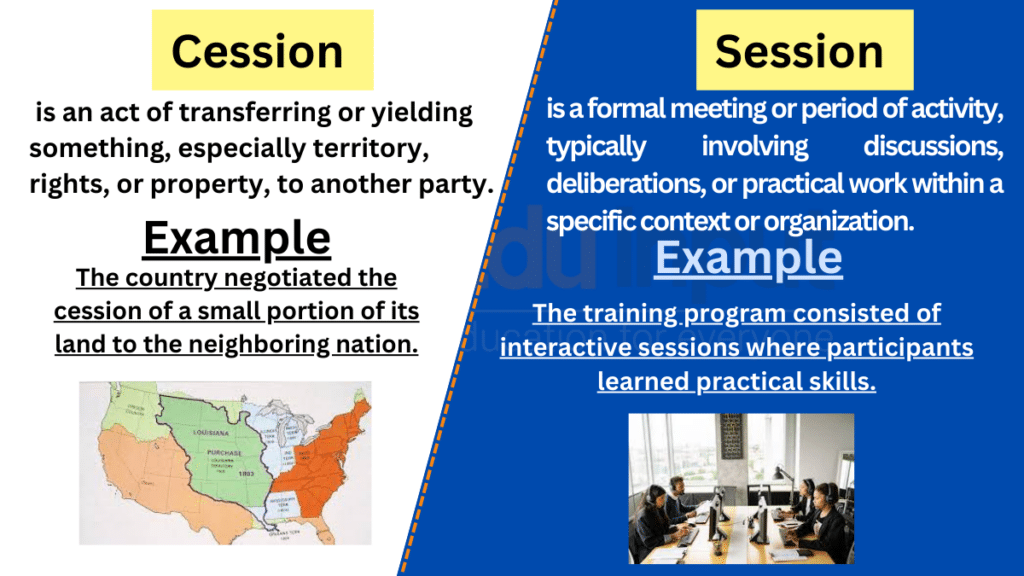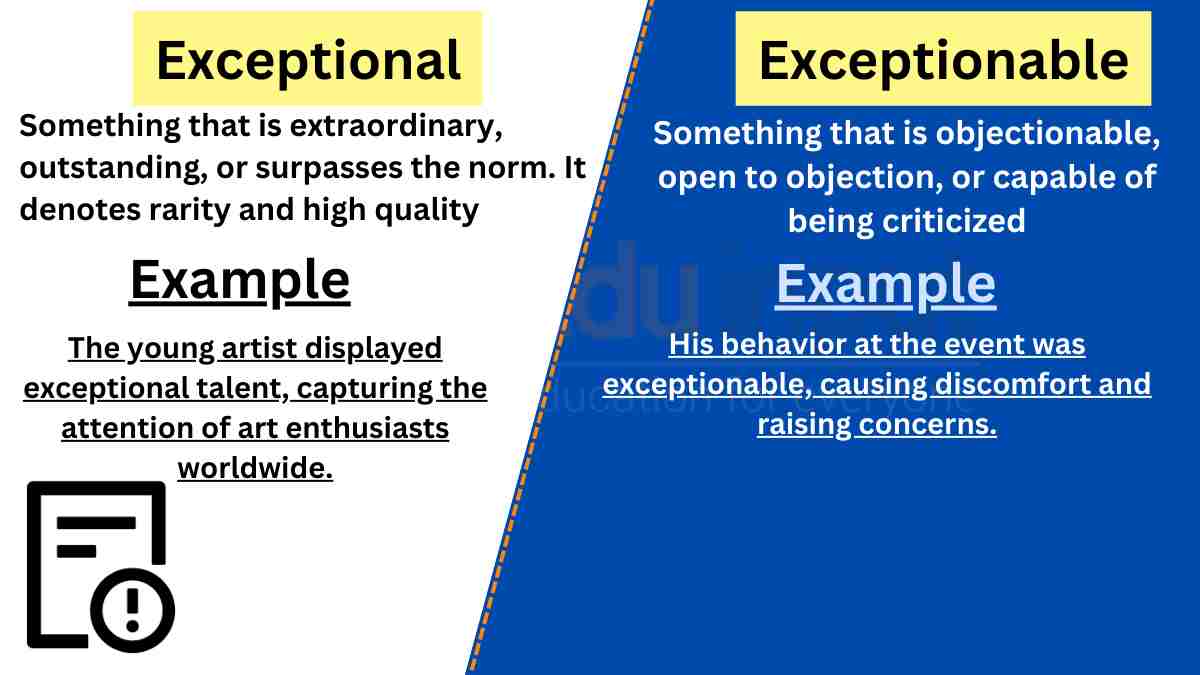Cession vs. Session-Difference between and Examples
In the English language, certain words may sound similar but have distinct meanings and contexts of usage. “Session” and “session” are two such terms that, despite their phonetic resemblance, refer to different concepts. This article will explore the differences between “session” and “session” to better understand their definitions and applications. By distinguishing between “cession” as the act of transferring or yielding something and “session” as a formal meeting or period of activity, we can effectively communicate and utilize these terms in their appropriate contexts. Let’s delve into the contrasts between “cession” and “session.”

Meanings and Examples
Cession meaning
Cession is a noun. The meaning of cession is an act of transferring or yielding something, especially territory, rights, or property, to another party.
Cession Examples
a) The country negotiated the cession of a small portion of its land to the neighboring nation.
b) The treaty included a provision for the cession of certain fishing rights in the disputed waters.
c) After much deliberation, the company decided on the cession of its intellectual property rights to a strategic partner.
d) The historical document outlined the terms and conditions of the cession of land from one kingdom to another.
e) The cession of the property to the government ensured its preservation as a public park.
Session meaning
Session is a noun. The meaning of a session is a formal meeting or period of activity, typically involving discussions, deliberations, or practical work within a specific context or organization.
Session Examples
a) The board of directors held a session to discuss the company’s financial performance and future strategies.
b) The parliament convened a special session to address urgent matters of national importance.
c) The conference featured various sessions covering different topics of interest to the attendees.
d) The therapy session provided a safe space for individuals to discuss their thoughts and emotions.
e) The training program consisted of interactive sessions where participants learned practical skills.
Difference between cession and session
| Criteria | Cession | Session |
| Meaning | The act of transferring or yielding something, especially territory, rights, or property | A formal meeting or period of activity, typically involving discussions, deliberations, or practical work |
| Part of Speech | Noun | Noun |
| Pronunciation | ˈsɛʃən | ˈsɛʃən |
| Usage | Refers to the transfer or yielding of something to another party | Refers to a formal meeting or period of activity within a specific context or organization |
Usage in a Paragraph
The negotiations between the two countries resulted in the cession of a strategic piece of land to maintain peace in the region. The cession agreement outlined the exact boundaries and conditions of the transfer, ensuring a smooth transition of ownership.
The conference featured multiple sessions covering a wide range of topics. Participants could choose the sessions that aligned with their interests and professional goals. Each session consisted of presentations, panel discussions, and interactive workshops, providing valuable insights and networking opportunities.
By understanding the differences between “cession” and “session,” we can accurately communicate and utilize these terms in their respective contexts. “Cession” refers to the act of transferring or yielding something, particularly territory, rights, or property, to another party. On the other hand, “session” denotes a formal meeting or period of activity involving discussions, deliberations, or practical work within a specific context or organization. By using these terms correctly, we can navigate discussions related to the transfer of assets and engagements in formal meetings or activities.






Leave a Reply